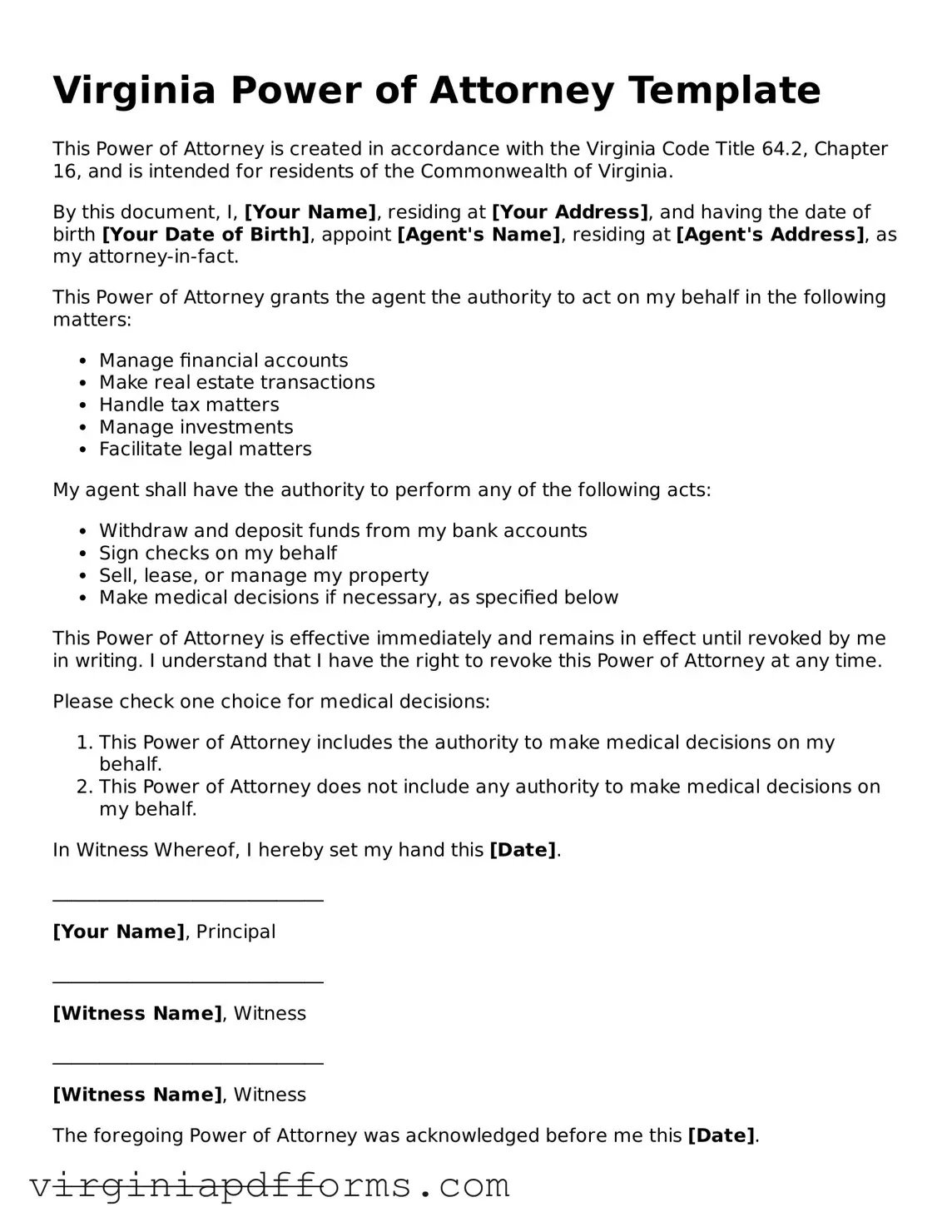Attorney-Approved Virginia Power of Attorney Document
A Virginia Power of Attorney form is a legal document that allows one person to grant another the authority to act on their behalf in financial or medical matters. This form is essential for ensuring that your wishes are respected when you cannot make decisions for yourself. Understanding how to complete and use this document can provide peace of mind for you and your loved ones.
Access My Document Now

Attorney-Approved Virginia Power of Attorney Document
Access My Document Now

Access My Document Now
or
Free Power of Attorney File
Need this form wrapped up fast?
Finish Power of Attorney online — edit, save, download without effort.